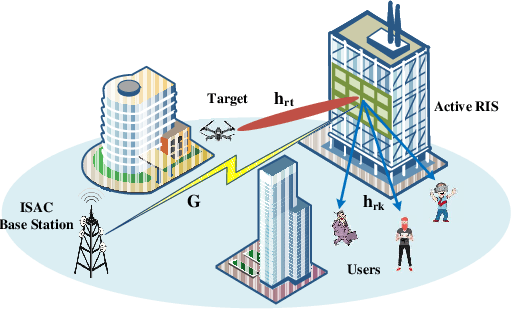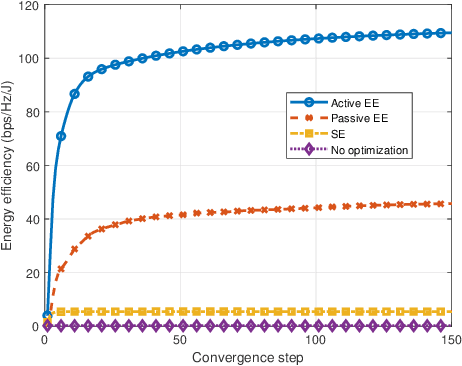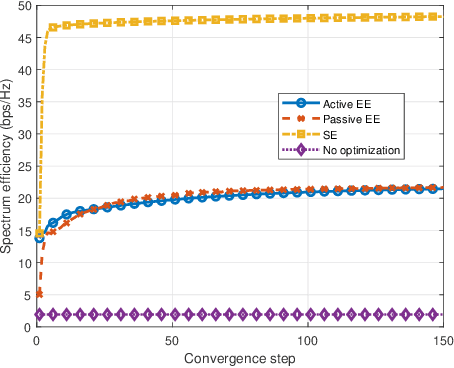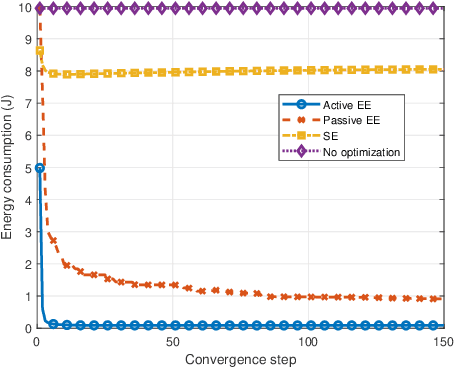Energy Efficiency Optimization in Active Reconfigurable Intelligent Surface-Aided Integrated Sensing and Communication Systems
Paper and Code
Nov 28, 2023



Energy efficiency (EE) is a challenging task in integrated sensing and communication (ISAC) systems, where high spectral efficiency and low energy consumption appear as conflicting requirements. Although passive reconfigurable intelligent surface (RIS) has emerged as a promising technology for enhancing the EE of the ISAC system, the multiplicative fading feature hinders its effectiveness. This paper proposes the use of active RIS with its amplification gains to assist the ISAC system for EE improvement. Specifically, we formulate an EE optimization problem in an active RIS-aided ISAC system under system power budgets, considering constraints on user communication quality of service and sensing signal-to-noise ratio (SNR). A novel alternating optimization algorithm is developed to address the highly non-convex problem by leveraging a combination of the generalized Rayleigh quotient optimization approach, semidefinite relaxation (SDR), and the majorization-minimization (MM) framework. Furthermore, to accelerate the algorithm and reduce computational complexity, we derive a semi-closed form for eigenvalue determination. Numerical results demonstrate the effectiveness of the proposed approach, showcasing significant improvements in EE compared to both passive RIS and spectrum efficiency optimization cases.
 Add to Chrome
Add to Chrome Add to Firefox
Add to Firefox Add to Edge
Add to Edge